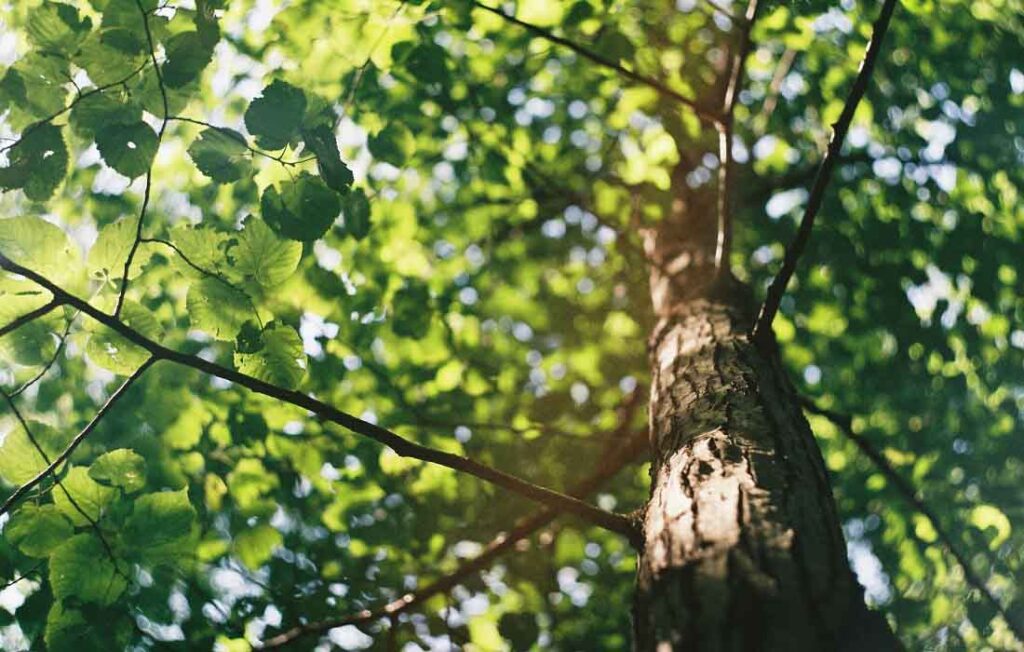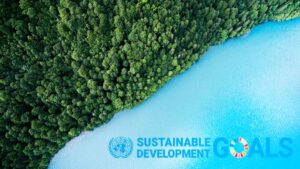At COP26, the United Nations Climate Change Conference, the international community once again pledged to halt—and even reverse—global deforestation by 2030. Unfortunately, deforestation continues to be one of the most devastating environmental issues, with no signs of subsiding. It is leading to massive biodiversity loss and contributing enormously to climate change among a host of other alarming issues. According to Conservation International and the World Resources Institute, global tropical forest loss averaged 3.36 million hectares (8.3 million acres) a year between 2002 and 2019—an area larger than Belgium. Such dramatic loss is entirely unsustainable.
Why is this happening? 40% of deforestation is the result of agricultural practices—largely cattle ranching, soy cultivation, and oil palm plantations—which are known drivers of deforestation across the globe. Other significant contributors include mining, infrastructure and urbanization, and, increasingly, wildfires, which are being exacerbated by a rapidly changing climate.
Groups Facing Off Against Reforestation
Considering that all people, in some way, rely on healthy global forests for survival, as well as the day-to-day consideration that deforestation impacts 1.6 billion rural people worldwide who rely on forests for their livelihoods, it is evident that more must be done. We need to take action now. Luckily, there are numerous dedicated and innovative nonprofits working every day to restore our planet’s forests. We’ve put together a list of eight reforestation organizations to help you get started.
Washington D.C.
With a focus on natural restoration and reforestation, American Forests plants nursery-grown seedlings, conducts controlled burns as needed for forest health, and collects seeds from wild native plants for repopulating native species and building natural resilience to drought, flooding, and wildfires.
California
In support of California’s forests and plant species, particularly those harmed by the wildfires every year, California Native Plant Society (CNPS) is working alongside other environmental organizations to create standardized forest management plans as well as inclusive Species of Conservation Concern plant lists to ensure the protection of all native plant life.
Minnesota
The Forest Stewardship Council (FSC) is helping to protect forests for future generations by increasing demand for products created from responsibly managed forests. The FSC certification logo has become synonymous with environmental responsibility in the global marketplace.
Washington
Forterra works with communities throughout Washington State to restore urban parks, protect native forests and plant species, and prevent invasive species from damaging critical habitats across the state. Forterra’s Green City Partnership allows citizens to come together and steward natural open spaces in their communities.
New York
The New York Restoration Project (NYRP) works to ensure equitable access to green, open spaces throughout New York City. NYRP manages more than 50 gardens and parks, helping to ensure food sovereignty for these areas, and has aided in the construction of more than 250 community gardens. NYRP has also planted more than one million trees as part of its MillionTreesNYC program.
Pennsylvania
The state of Pennsylvania is facing numerous forest-related threats, from deforestation at the hands of manufacturing to invasive insects that have been slowly attacking native tree species. The Pennsylvania Parks & Forest Foundation is dedicated to replanting trees throughout the state’s 2.2 million acres of green space.
Texas
TreeFolks has planted more than 2.8 million trees in Central Texas, creating a healthier environment for all Texans. In addition to community-level tree planting programs, TreeFolks also offers education on carbon reduction, urban forest stewardship, general tree care and maintenance, and more.
Georgia
Trees Atlanta educates local Atlanteans on native plant species, how to spot invasive plants, forest restoration, and more. The nonprofit also organizes the planting of native trees, shrubbery, and vines, as well as the clean-up of exotic invasive plants. With a focus on fostering stewardship at the community-level, Trees Atlanta works directly with citizen volunteers to make the city a greener, healthier environment for all.
The REPLANT Act in America
In November 2021, President Joe Biden signed one of the most significant forest investments in the history of the United States. More than $5 billion will be directed to wildlife resilience projects. The plan was created with the health of the environment and American population in mind. After all, forests purify the air we breathe, the water we drink, offer spaces for outdoor recreation, provide jobs for forest workers, and are the habitat for thousands of nature species of animal and plant life.
This plan will help fund and replenish the country’s 193 million acres of national forests, including wildfire recovery. Additionally, it supports urban tree planting in order to reduce heat islands and make cities more comfortable, livable, and enjoyable for all citizens.
Have questions? Looking for additional suggestions? Don’t hesitate! Reach out to EarthShare at nonprofits@earthshare.org and we’ll walk you through your options. If you know a reforestation organization that’s not on the list above, please do share it with us. Who knows, they may even join our Nonprofit Partner Network!



